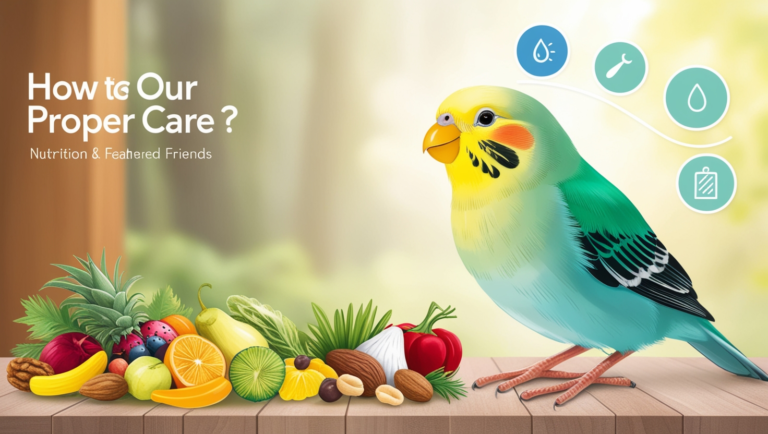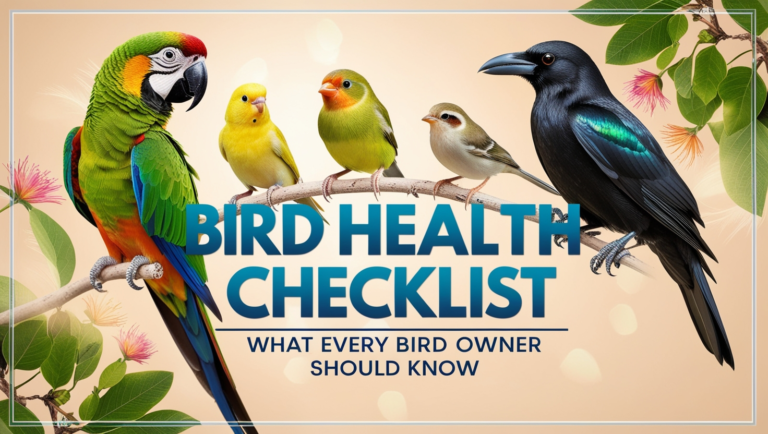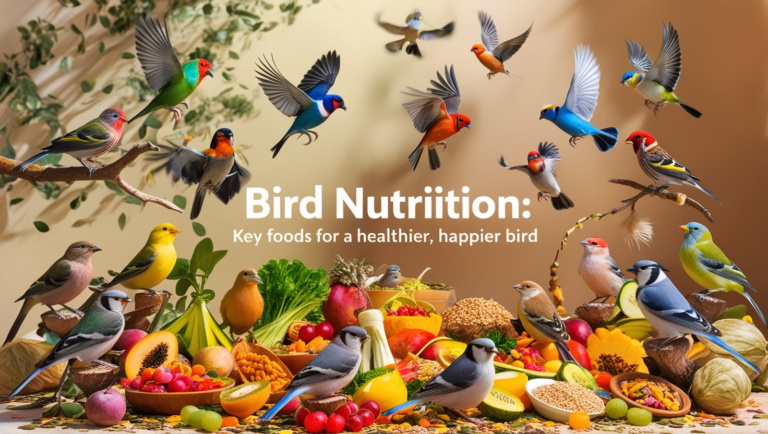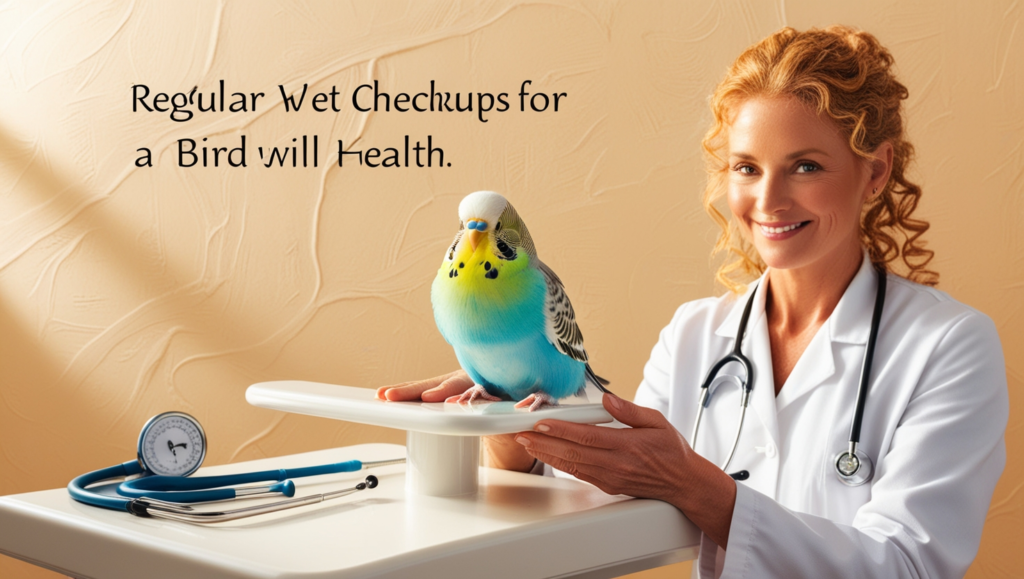
Birds are often viewed as low-maintenance pets, but their care requires attention, just like any other pet. One of the most critical aspects of keeping a bird healthy is scheduling regular veterinary checkups. These visits play an essential role in early disease detection, preventative care, and ensuring overall well-being. In fact, birds are experts at hiding illness—a survival instinct from their wild counterparts. Regular vet visits are the best way to stay ahead of any potential health issues.
Here’s why consistent veterinary checkups are essential for your bird’s long-term health:
I. Early Detection of Illnesses
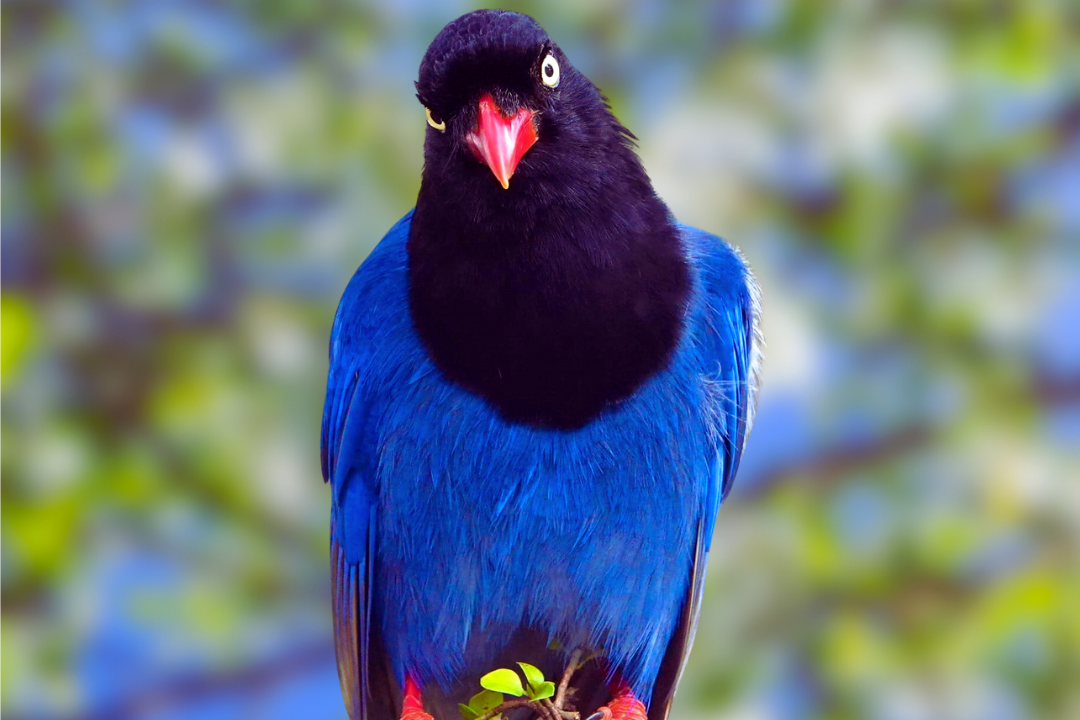
Birds are masters at concealing illness, a survival trait they developed in the wild to avoid appearing vulnerable to predators. However, this instinctive behavior makes it difficult for bird owners to detect when something is wrong. By the time symptoms become noticeable, the illness may already be in its advanced stages, making treatment more complicated and less effective. This is where regular veterinary checkups play a crucial role, as they help in the early detection of illnesses, allowing for prompt intervention before issues escalate.
Why Early Detection is Crucial
Because birds are experts at hiding signs of illness, it is essential to rely on the trained eyes of a veterinarian who can catch subtle changes in your bird’s health. Early detection of illnesses can:
- Prevent the progression of disease: Many bird illnesses, such as respiratory infections, liver diseases, and nutritional deficiencies, can become life-threatening if not treated early.
- Reduce the cost of treatment: Catching a health problem early means that treatment is often simpler, less invasive, and less expensive than if the illness progresses to a more serious stage.
- Improve recovery rates: Birds that receive treatment in the early stages of illness generally have a much better prognosis and quicker recovery than those whose illness has advanced.
Common Conditions Detected Early Through Regular Checkups
1. Respiratory Infections
Birds are highly susceptible to respiratory infections, which can be caused by bacteria, fungi, or viruses. Signs of respiratory issues, like labored breathing or nasal discharge, are often subtle. A veterinarian can detect early signs through routine exams, such as listening to the bird’s breathing or checking for nasal obstructions. Early treatment with antibiotics or antifungal medications can prevent the infection from spreading.
2. Nutritional Deficiencies
Even a well-meaning bird owner may unknowingly provide a diet that lacks essential nutrients. Over time, deficiencies in vitamins like A, D, or calcium can lead to severe health problems, including poor feather quality, weak bones, or reproductive issues. During a vet checkup, blood tests can reveal any imbalances, allowing for dietary adjustments before deficiencies cause irreversible damage.
3. Liver Disease
Liver disease is relatively common in pet birds, often caused by a high-fat diet or infections. However, symptoms may not be apparent until the disease has progressed significantly. A vet can detect liver disease early by evaluating weight, feather condition, and running blood tests to check liver enzyme levels. Early intervention, including dietary changes and medication, can improve outcomes.
4. Parasitic Infections
External parasites like mites or lice and internal parasites such as worms can severely affect a bird’s health if left untreated. These parasites can cause feather loss, skin irritation, weight loss, or diarrhea. During a routine checkup, a vet will examine your bird for external parasites and may run fecal tests to detect internal parasites, allowing for prompt treatment.
5. Tumors
Birds, especially certain species like budgies and cockatiels, are prone to developing tumors. Often, these growths go unnoticed by owners until they become large enough to visibly distort the bird’s body. Regular vet checkups can help identify abnormal growths early on, and if necessary, your vet can perform a biopsy to determine if the tumor is benign or malignant.
How Vets Detect Early Signs of Illness
1. Physical Examination
A thorough physical exam is the first step in detecting early signs of illness. The vet will check your bird’s weight, feathers, beak, and eyes, as well as listen to its breathing and heartbeat. Even small changes in these areas can provide clues about underlying health problems.
2. Blood Tests
Bloodwork is a critical tool for early detection of many bird illnesses. A simple blood test can reveal infections, organ dysfunction, and nutritional deficiencies that aren’t yet causing noticeable symptoms. For example, elevated liver enzymes may indicate liver disease, while abnormal white blood cell counts can point to an infection or inflammation.
3. Fecal Analysis
A vet may perform a fecal test to check for internal parasites, bacterial infections, or digestive disorders. This test is particularly useful for detecting issues like Giardia, a parasite that causes diarrhea, which can lead to dehydration and other complications if not treated early.
4. Weight Monitoring
Weight changes in birds are often one of the earliest signs of illness. Even slight variations in weight can signal serious health issues, including digestive problems, tumors, or infections. A vet will regularly monitor your bird’s weight during checkups, ensuring any fluctuations are addressed before they lead to more significant health problems.
Benefits of Early Detection
1. Improved Prognosis
When health issues are caught early, treatment is often more effective. Whether the problem is an infection, nutritional deficiency, or organ dysfunction, early intervention increases the likelihood of a full recovery. This proactive approach ensures your bird has the best chance of overcoming illness before it becomes life-threatening.
2. Prevention of Spread
Many bird diseases, such as Psittacosis (Parrot Fever), are contagious and can spread quickly among birds or even to humans. Detecting these conditions early allows for isolation and treatment of the infected bird, preventing outbreaks in multi-bird households or aviaries.
3. Reduced Stress for the Bird
Illnesses that progress without treatment can cause significant discomfort and stress for your bird. Early detection minimizes the duration and severity of symptoms, leading to a quicker recovery and less overall stress for your bird.
4. Cost-Effective Treatment
Addressing a health problem in its early stages often means less invasive treatment methods and shorter recovery times. This not only benefits your bird’s health but also reduces the financial burden of prolonged or complex treatments.
II. Preventative Care and Vaccinations
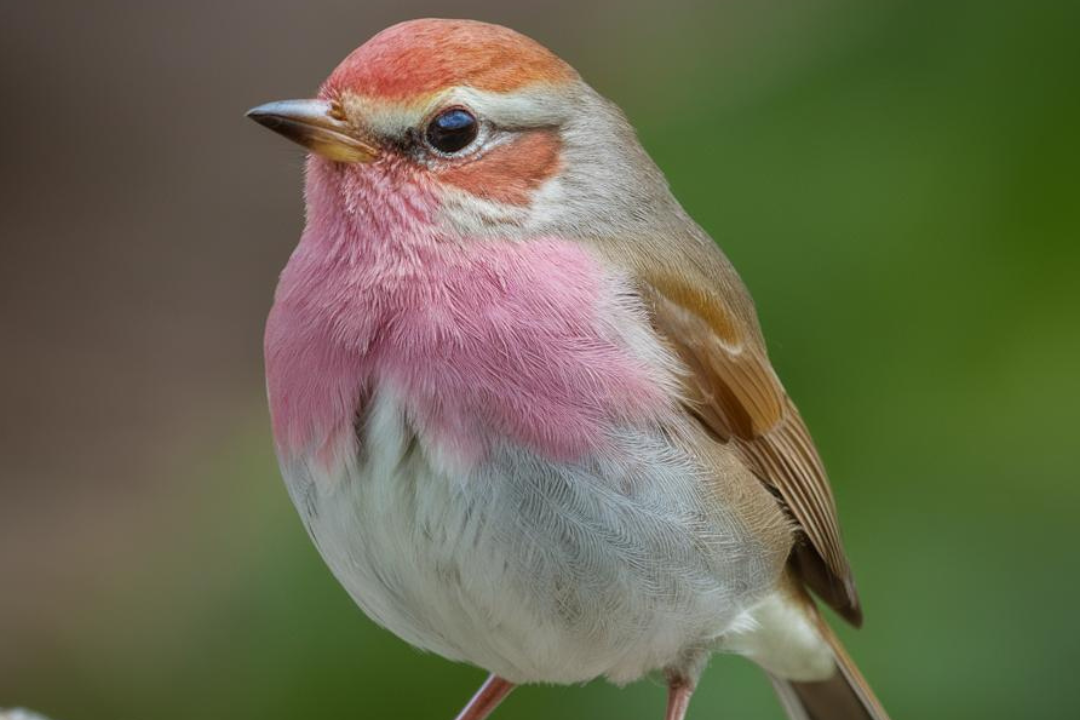
Preventative care and vaccinations are essential to ensuring the long-term health and well-being of your bird. Just as with other pets, taking proactive measures to prevent illness is always better than waiting for symptoms to arise. Regular veterinary checkups offer the perfect opportunity for your bird to receive necessary vaccinations and undergo preventative care that will protect them from common diseases and other health issues.
Why Preventative Care is Crucial for Birds
Birds, especially those living in captivity, are prone to a range of health problems that can often go unnoticed until they become severe. Preventative care aims to identify potential health risks early on and take action before these risks develop into serious conditions. Regular vet visits allow for:
- Early identification of health risks: Routine exams can reveal signs of nutritional deficiencies, parasites, infections, or underlying conditions that may not yet be apparent to the owner.
- Reduced risk of contagious diseases: Many common bird illnesses are highly contagious. By taking preventative measures, including vaccinations, you reduce the chances of your bird contracting these diseases.
- Health monitoring for long-term well-being: Maintaining good health over the long term is more likely when issues are detected early. Regular visits help track your bird’s health status and make adjustments as needed to prevent future complications.
Common Vaccinations for Birds
Vaccinations are a key component of preventative care for birds. Although not all birds require vaccinations, certain species or those exposed to specific environments may benefit from being vaccinated against serious diseases. Some common vaccinations include:
1. Pox Vaccine
The pox vaccine is commonly given to birds that are at risk of contracting avian pox, a viral disease transmitted by mosquitoes or direct contact with infected birds. This disease can cause skin lesions, difficulty breathing, and even death in severe cases. Vaccinating birds, especially those in outdoor aviaries or areas prone to mosquito activity, can significantly reduce the risk of infection.
2. Polyomavirus Vaccine
Polyomavirus is a highly contagious virus that primarily affects young birds, particularly parrots, causing gastrointestinal and neurological symptoms. The disease can be fatal, especially in unvaccinated chicks. Vaccinating against polyomavirus is recommended for breeding birds, young birds, and birds that are frequently exposed to other birds, such as those in aviaries or pet stores.
3. Psittacosis (Parrot Fever)
Psittacosis is a bacterial infection that affects both birds and humans. It is spread through inhalation of dust from bird droppings or respiratory secretions. Symptoms in birds include respiratory distress, lethargy, and weight loss. Although there isn’t a vaccine specifically for psittacosis, preventative measures like regular vet checkups and environmental management can help reduce the risk of infection. If detected early, psittacosis can be treated with antibiotics.
4. Newcastle Disease Vaccine
Newcastle disease is a viral infection that affects the respiratory, digestive, and nervous systems of birds. It is highly contagious and can spread rapidly among birds in close contact, making it a serious threat to aviaries and bird populations. The Newcastle disease vaccine is primarily used in poultry but may also be administered to pet birds in high-risk areas.
Additional Preventative Care Measures
1. Parasite Control
Parasites, both internal (like worms) and external (such as mites or lice), can significantly impact your bird’s health if left unchecked. Routine checkups provide an opportunity for your veterinarian to examine your bird for signs of parasitic infections. If detected, they can recommend treatments such as dewormers or anti-parasitic medications.
2. Nutritional Guidance
Proper nutrition is vital to maintaining your bird’s health. During regular checkups, your vet can assess your bird’s diet and recommend adjustments if necessary. This is particularly important because nutritional deficiencies can lead to a range of health issues, including poor feather quality, weak bones, and compromised immune function. Preventative care includes monitoring your bird’s weight and providing guidance on dietary needs, including the balance of seeds, pellets, fresh fruits, and vegetables.
3. Beak and Nail Trimming
Beak and nail overgrowth can cause discomfort and impede your bird’s ability to eat or perch properly. Regular vet visits ensure that these issues are addressed before they become problematic. Vets can trim your bird’s beak and nails as part of routine preventative care, preventing more significant issues from developing.
4. Environmental Assessment
The environment in which your bird lives can have a significant impact on its overall health. During a checkup, your vet can offer advice on cage cleanliness, perching arrangements, and the importance of proper ventilation and lighting. Poor environmental conditions can contribute to respiratory problems, feather plucking, and stress-related health issues. Preventing these problems through good cage hygiene and appropriate setup is a key aspect of bird care.
Benefits of Preventative Care
1. Prolonged Lifespan
Birds that receive regular preventative care, including vaccinations, are more likely to live longer, healthier lives. By taking proactive steps to prevent illness, you can ensure your bird stays in good health and avoids many of the common diseases that affect captive birds.
2. Reduced Veterinary Costs
While routine checkups and vaccinations involve an upfront cost, they can save you significant money in the long run by preventing serious health problems that may require expensive treatments. Preventative care helps avoid the need for emergency vet visits and costly interventions.
3. Improved Quality of Life
A bird that is well cared for and protected from disease will have a higher quality of life. Preventative care helps reduce the risk of chronic illnesses, discomfort from untreated conditions, and the stress associated with being unwell.
4. Peace of Mind for Owners
Regular checkups and vaccinations offer bird owners peace of mind, knowing that they are doing everything possible to protect their pet’s health. Preventative care helps reduce the worry associated with potential illnesses and ensures that your bird is receiving the best care possible.
III. Monitoring Weight and Nutrition

Monitoring your bird’s weight and nutrition is a critical part of maintaining its overall health, and regular veterinary checkups play a key role in this process. Birds are particularly sensitive to changes in their diet and body condition, and even slight fluctuations in weight can signal underlying health issues. A balanced diet, paired with routine monitoring by a veterinarian, ensures your bird is receiving the proper nutrients and maintaining a healthy weight.
Why Weight Monitoring is Crucial for Birds
Unlike many other pets, birds can quickly develop health problems if they experience even minor changes in their body weight. Because birds are naturally light creatures, a small loss or gain in weight can have significant effects on their overall health. Regularly monitoring your bird’s weight can:
- Help Detect Health Problems Early: Sudden weight loss can be a sign of illness, such as infections, parasites, or metabolic disorders. Conversely, rapid weight gain may indicate obesity, which can lead to heart disease, liver problems, and a reduced lifespan.
- Maintain Nutritional Balance: Birds require a carefully balanced diet to meet their unique nutritional needs. Regular weight checks ensure that your bird is neither overfed nor underfed, helping to prevent malnutrition or obesity.
- Ensure Growth and Development: For younger birds, maintaining a steady weight gain is important for healthy growth. Regular vet checkups allow your veterinarian to monitor this growth and adjust dietary recommendations accordingly.
The Role of Nutrition in Your Bird’s Health
Providing the correct diet is essential to your bird’s well-being. Birds have specific dietary needs depending on their species, size, and activity level. A poor diet can result in a variety of health problems, including feather plucking, poor immune function, and brittle bones.
1. Species-Specific Diets
Different bird species have different nutritional requirements. For example, parrots, finches, and canaries all have varying dietary needs based on their natural diet in the wild. Some birds may require more seeds, while others thrive on a higher proportion of fruits, vegetables, or protein. Regular vet checkups help ensure that your bird’s diet is tailored to its specific needs.
2. Pellets as a Foundation
Pellets are often recommended by veterinarians as the foundation of a bird’s diet. Unlike seeds, which are high in fat and low in essential nutrients, pellets provide a more balanced array of vitamins, minerals, and proteins. During regular checkups, your vet can assess your bird’s pellet intake and recommend the best brands and quantities for optimal nutrition.
3. Fresh Foods for Variety
In addition to pellets, fresh fruits and vegetables are vital components of a bird’s diet. Foods such as leafy greens, carrots, apples, and berries provide essential vitamins and antioxidants. However, offering the right balance is important, as too much fruit can increase sugar intake, leading to weight gain. Your vet can guide you on portion sizes and variety to ensure your bird is getting the right nutrients from these foods.
How Vets Monitor Weight and Nutrition
During regular vet visits, veterinarians use a few methods to monitor your bird’s weight and nutritional health:
1. Weighing
Weighing your bird is one of the simplest and most effective ways to monitor its health. Vets use specialized scales to measure a bird’s weight down to the gram. Comparing your bird’s weight over time helps to identify any concerning trends, such as steady weight loss or gain.
2. Body Condition Scoring
In addition to weighing, vets may use body condition scoring to assess your bird’s overall health. This involves examining your bird’s muscle mass, fat deposits, and general physical condition. Body condition scoring helps to determine whether your bird is underweight, overweight, or at an ideal weight.
3. Dietary Evaluation
During checkups, your veterinarian will evaluate your bird’s diet and offer recommendations based on its current health and weight. This may involve adjusting the ratio of pellets to fresh foods, reducing seed intake, or incorporating supplements to address specific nutritional deficiencies.
Signs Your Bird’s Weight or Nutrition May Be Off
Certain signs may indicate that your bird is experiencing issues with its weight or nutrition. If you notice any of the following, it’s important to consult with your veterinarian:
- Sudden weight loss: If your bird feels lighter than usual or appears to have lost weight quickly, it could be a sign of illness or malnutrition.
- Obesity: Birds that have excessive fat deposits, particularly around the chest and abdomen, may be overweight. Obesity can lead to respiratory problems, heart disease, and other health issues.
- Poor feather quality: Dull, brittle, or missing feathers can indicate that your bird’s diet lacks essential vitamins and minerals.
- Lethargy: If your bird is less active than usual, it may not be getting the proper nutrition to maintain energy levels.
How You Can Monitor Your Bird’s Weight at Home
In addition to regular vet checkups, it’s a good idea to monitor your bird’s weight at home. By regularly weighing your bird, you can detect any fluctuations early and take action before they become serious. Here’s how to safely weigh your bird at home:
- Purchase a bird scale: A small digital scale with a perch attachment works best for weighing birds. These are available at pet stores or online.
- Weigh at the same time each day: To get accurate readings, weigh your bird at the same time every day, preferably in the morning before feeding.
- Track weight trends: Keep a record of your bird’s weight to identify trends over time. A consistent weight is a good sign, while rapid fluctuations warrant a trip to the vet.
Preventing Weight Issues with a Balanced Diet
Maintaining a balanced diet is the most effective way to prevent weight-related issues in your bird. Here are some tips for providing a nutritious diet:
- Offer a variety of foods: Include a mix of high-quality pellets, fresh fruits, vegetables, and occasional seeds to ensure balanced nutrition.
- Limit treats: Seeds, nuts, and human foods should only be given as occasional treats, as they can be high in fat and calories.
- Ensure proper portion sizes: Overfeeding can lead to obesity, while underfeeding can cause malnutrition. Consult your vet to determine the right portion sizes for your bird.
IV. Beak, Nail, and Feather Care
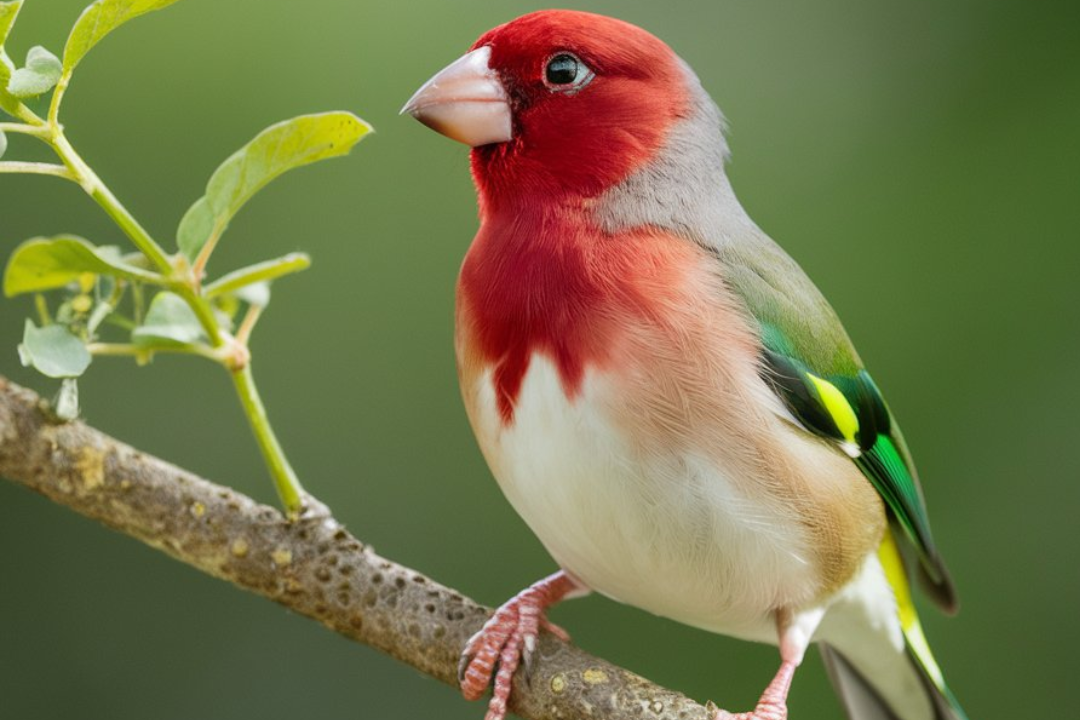
Maintaining proper beak, nail, and feather care is essential for your bird’s overall health, and regular vet checkups ensure that these crucial aspects are monitored and maintained. Birds rely heavily on the condition of their beak, nails, and feathers for daily functions like eating, climbing, and flying. Without proper care, issues with these parts of their body can lead to discomfort, health problems, or even severe injury. Regular veterinary visits help keep your bird’s beak, nails, and feathers in optimal condition and allow for early detection of potential problems.
Beak Care: Why It Matters
A bird’s beak is more than just a tool for eating; it is also used for preening, climbing, and manipulating objects. A healthy beak is essential for these activities, and any issues with beak overgrowth, cracks, or deformities can have serious implications.
1. Overgrown Beak
In the wild, birds naturally wear down their beaks through foraging and gnawing on branches or other objects. However, pet birds may not always have the opportunity to file their beaks naturally, leading to overgrowth. An overgrown beak can make it difficult for your bird to eat or perform other daily activities. Regular vet checkups allow your veterinarian to trim the beak if necessary, ensuring it stays at the proper length.
2. Cracked or Damaged Beak
Cracks or injuries to the beak can occur due to accidents or underlying health issues such as nutritional deficiencies. A damaged beak can be painful and may affect your bird’s ability to eat properly. Your vet will examine the beak during checkups to ensure it’s free from damage and may recommend dietary changes or supplements if beak health is compromised.
3. Signs of Illness
The condition of your bird’s beak can sometimes indicate underlying health problems. Discoloration, abnormal growths, or flakiness may point to infections, liver disease, or other medical conditions. Regular veterinary checkups are key to catching these signs early and addressing them before they become serious.
Nail Care: Preventing Overgrowth and Injury
Just like the beak, a bird’s nails need to be kept at an appropriate length to ensure comfort and functionality. Overgrown nails can cause a variety of problems, including difficulty perching, walking, or even injury.
1. Overgrown Nails
If your bird’s nails become too long, they can curl under and make perching uncomfortable. In some cases, overgrown nails can even lead to injury if they get caught in cage bars or other objects. During regular vet visits, your veterinarian will trim your bird’s nails to prevent overgrowth and ensure they are at a healthy length.
2. Nail Injuries
Nail injuries, such as breaks or splits, can occur if your bird’s nails become too long or get caught on something. These injuries can be painful and may lead to infection. Your vet will check for any signs of nail damage and treat any injuries during regular checkups.
3. Proper Nail Trimming Techniques
While some bird owners attempt to trim their bird’s nails at home, improper trimming can lead to bleeding or injury. Your vet is trained to trim nails safely and efficiently, reducing the risk of injury to your bird.
Feather Care: Ensuring Healthy Plumage
Your bird’s feathers play a vital role in its ability to fly, regulate body temperature, and maintain overall well-being. Feather health is a reflection of your bird’s overall health, and regular checkups help ensure that your bird’s plumage remains in top condition.
1. Feather Plucking
Feather plucking is a common issue in birds and can be caused by stress, boredom, or underlying health problems such as infections or nutritional deficiencies. Regular vet checkups allow your veterinarian to assess the cause of feather plucking and recommend appropriate solutions, such as environmental enrichment, dietary adjustments, or medical treatment.
2. Molting
Molting is a natural process where birds shed old feathers and grow new ones. While molting is normal, excessive or abnormal molting can indicate health problems. Your vet will examine your bird’s molting patterns during checkups to ensure they are within normal limits and may provide advice on how to support your bird during the molting process.
3. Feather Condition
The condition of your bird’s feathers can reveal a lot about its health. Dull, brittle, or missing feathers may indicate nutritional deficiencies, stress, or illness. During regular checkups, your veterinarian will assess the overall condition of your bird’s feathers and provide guidance on improving feather quality through diet, environment, or medical treatment if necessary.
The Role of Regular Vet Checkups in Beak, Nail, and Feather Care
Veterinary checkups are essential for maintaining proper beak, nail, and feather care. During these visits, your vet will perform the following checks:
- Examination of the Beak Your veterinarian will check the shape, length, and condition of your bird’s beak. If the beak is overgrown, cracked, or discolored, your vet will trim it or recommend treatments to address any underlying health concerns.
- Nail Trimming Your vet will carefully trim your bird’s nails to prevent overgrowth and reduce the risk of injury. Regular nail trimming ensures your bird can perch and walk comfortably.
- Feather Inspection The vet will examine your bird’s feathers for signs of plucking, molting issues, or poor feather quality. Any abnormalities in feather condition will be addressed with appropriate treatments, such as dietary adjustments or medications.
- General Health Assessment During the checkup, your vet will also assess your bird’s overall health, including its weight, behavior, and nutrition, all of which can impact beak, nail, and feather condition.
How to Support Beak, Nail, and Feather Health at Home
While regular veterinary checkups are essential, there are also steps you can take at home to support your bird’s beak, nail, and feather health:
- Provide Proper Nutrition A balanced diet rich in essential vitamins and minerals is crucial for maintaining healthy feathers, a strong beak, and appropriately growing nails. Your vet can recommend the best diet for your bird’s specific needs.
- Offer Enrichment Provide toys, perches, and other objects for your bird to gnaw on, helping to naturally file its beak and keep it at a healthy length.
- Ensure Proper Grooming Regular baths or misting help keep your bird’s feathers clean and healthy. Some birds enjoy preening after a bath, which promotes feather maintenance.
- Use Perches of Different Textures Offering perches with different textures can help naturally wear down your bird’s nails, reducing the need for frequent trimming.
- Monitor for Changes Keep an eye on your bird’s beak, nails, and feathers, and report any changes, such as overgrowth, discoloration, or abnormal feather loss, to your vet.
V. Special Care for Senior Birds
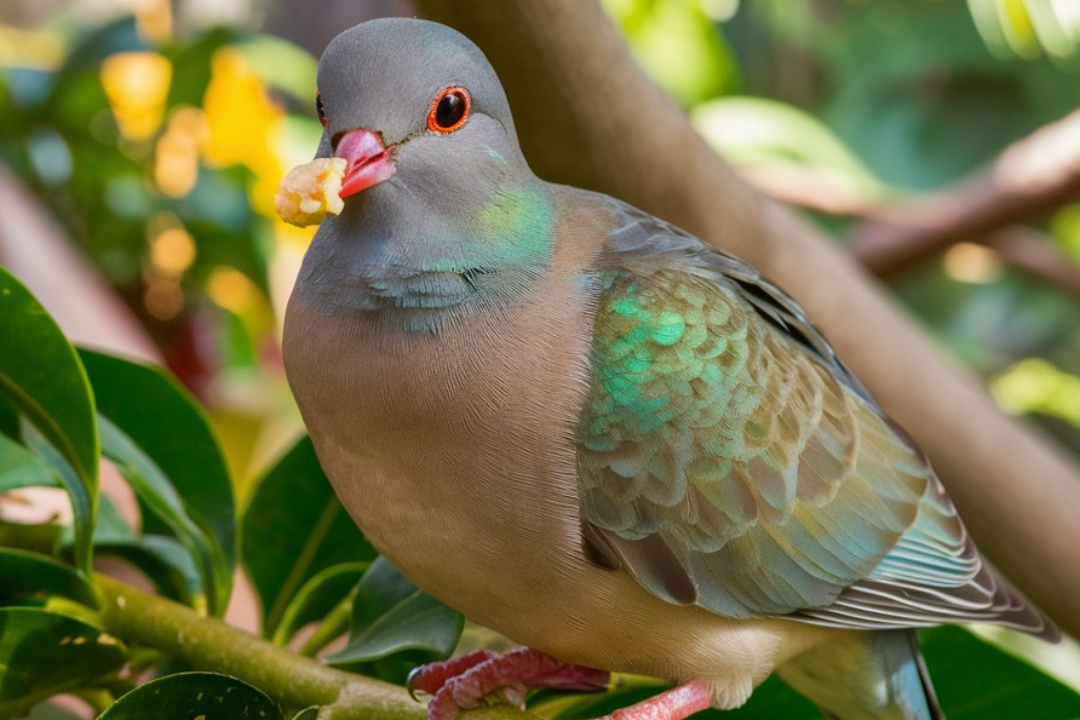
As birds age, their health care needs change, requiring special attention to ensure they remain happy and healthy in their senior years. Just like humans, senior birds can experience a range of age-related health issues, from arthritis and respiratory problems to declining vision and changes in behavior. Regular veterinary checkups are crucial for detecting these issues early, providing tailored care, and enhancing the quality of life for your feathered companion.
Why Senior Birds Need Special Care
Birds often live long lives, with many species living for decades. However, as they reach their senior years, their bodies undergo changes that can lead to health problems if not addressed properly. Senior birds may experience:
- Weakened Immune Systems: Older birds are more susceptible to infections and diseases due to a natural decline in immune function.
- Arthritis and Mobility Issues: Joint pain and stiffness can affect their ability to move, perch, and fly.
- Digestive Changes: Aging birds may have difficulty digesting certain foods, leading to nutritional deficiencies or weight loss.
- Behavioral Changes: Cognitive decline or sensory changes, such as impaired vision or hearing, may affect their behavior.
Given these potential health challenges, regular veterinary care is essential to monitor and address the unique needs of senior birds. Early detection and preventive measures can make a significant difference in maintaining their well-being.
What to Expect During a Senior Bird Checkup
During regular vet visits, your veterinarian will perform a comprehensive examination, paying special attention to age-related issues. Here are some key areas of focus:
1. Mobility and Joint Health
One of the most common issues faced by senior birds is arthritis or joint stiffness. These conditions can make it difficult for them to perch, climb, or fly as they once did. During a checkup, your vet will assess your bird’s mobility by observing how it moves, perches, and interacts with its environment. If arthritis is present, your vet may recommend:
- Pain Management: Medications or supplements to relieve joint pain and improve mobility.
- Adjustments to the Cage Environment: Adding softer perches or making the cage easier to navigate to reduce strain on your bird’s joints.
2. Weight and Nutrition
Aging birds may experience changes in their metabolism, leading to weight loss, weight gain, or nutritional deficiencies. Your vet will closely monitor your bird’s weight and body condition during checkups to ensure it is maintaining a healthy weight. They may also evaluate your bird’s diet to ensure it meets the specific nutritional needs of a senior bird.
- Special Diets: Older birds may require softer foods, easily digestible proteins, or supplements to address age-related deficiencies.
- Weight Monitoring: Regular weighing helps detect any significant weight fluctuations, which could indicate underlying health problems.
3. Feather Condition and Grooming Habits
Senior birds may show changes in their feather condition, such as thinning feathers, reduced preening, or feather loss. Your vet will examine your bird’s feathers and skin to check for signs of nutritional deficiencies, stress, or other health issues. If your bird is not grooming as much as it used to, this could also signal arthritis or discomfort.
- Feather and Skin Care: Your vet may suggest dietary changes or environmental adjustments to improve feather quality and promote healthy grooming habits.
4. Respiratory and Cardiovascular Health
As birds age, they may be more prone to respiratory issues, especially if they have been exposed to dust, mold, or other environmental irritants throughout their life. Senior birds may also develop heart or lung problems, which can affect their overall vitality. During a senior bird checkup, your vet will listen to your bird’s heart and lungs for any signs of respiratory distress or cardiovascular disease.
- Breathing Evaluations: Any signs of labored breathing, coughing, or wheezing will be thoroughly investigated.
- Cardiovascular Monitoring: Your vet will check for signs of heart disease, which can become more common in senior birds.
5. Behavioral and Cognitive Changes
Aging can bring changes in your bird’s behavior, including reduced activity, increased napping, or even cognitive decline. Your vet will assess your bird’s mental health and behavior during each checkup, looking for signs of confusion, anxiety, or changes in personality.
- Mental Stimulation: To support cognitive function, your vet may suggest adding mentally stimulating activities, such as new toys or puzzles, to your bird’s environment.
- Behavioral Adjustments: If your bird is showing signs of anxiety or depression, your vet may recommend changes in routine or environment to improve its emotional well-being.
6. Eye and Beak Health
Senior birds may develop vision problems, such as cataracts, or experience changes in their beak’s growth and condition. Your vet will check your bird’s eyes for signs of cloudiness or vision impairment, as well as inspect the beak for abnormalities.
- Eye Health: If vision loss is detected, your vet can help you make adjustments to your bird’s environment to accommodate its needs.
- Beak Trimming: If your bird’s beak has grown unevenly, a vet may trim it to ensure proper function and comfort.
7. Regular Bloodwork and Diagnostic Testing
For senior birds, regular diagnostic testing becomes more important to catch any potential health issues before they become serious. Blood tests can help detect early signs of organ dysfunction, infections, or metabolic imbalances. During a senior bird checkup, your vet may recommend:
- Bloodwork: Routine blood tests to monitor organ function and detect early signs of illness.
- X-rays or Ultrasounds: These imaging techniques can help assess the health of internal organs, such as the heart, lungs, and liver.
The Benefits of Regular Vet Checkups for Senior Birds
Regular vet visits are vital for keeping senior birds healthy and comfortable as they age. These checkups help:
- Detect Health Problems Early: Early detection allows for prompt treatment, which can slow the progression of age-related diseases.
- Tailor Care to Senior Needs: Vets can recommend specific diets, supplements, and environmental adjustments to address the unique needs of older birds.
- Enhance Quality of Life: With regular vet visits, you can ensure your bird enjoys a comfortable, pain-free, and mentally stimulating life in its senior years.
Caring for Your Senior Bird at Home
In addition to regular vet checkups, there are several steps you can take at home to support your senior bird’s health and well-being:
- Provide a Comfortable Environment: Adjust your bird’s cage to make it easier to navigate. This may include adding low, soft perches, ramps, and easily accessible food and water dishes.
- Monitor Health and Behavior: Keep an eye out for any changes in your bird’s eating, sleeping, or grooming habits, and report these to your vet.
- Maintain a Healthy Diet: Work with your vet to provide a diet that meets the nutritional needs of a senior bird, which may include softer foods or supplements.
- Encourage Mental Stimulation: Keep your bird engaged with toys, foraging activities, and social interaction to support cognitive health.
- Ensure Proper Hydration: Older birds may require more water, so always ensure fresh, clean water is readily available.
VI. Establishing an Emergency Plan
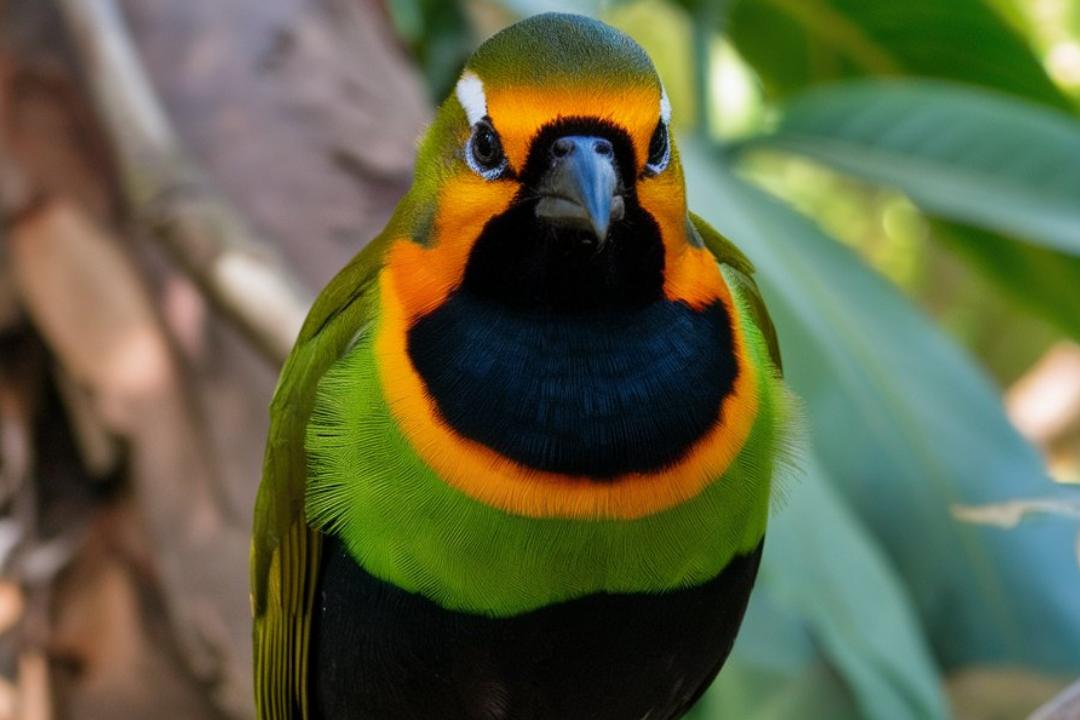
Birds are masters of masking illness, a survival instinct that makes them appear healthy even when they may be suffering. This trait can make it difficult for bird owners to recognize when their feathered friend is in distress. Having a well-established emergency plan, in addition to regular vet checkups, is a critical part of keeping your bird safe and healthy. Being prepared can help you act quickly and confidently if your bird faces a sudden health crisis.
Why an Emergency Plan is Essential for Bird Owners
Birds, like all pets, can face emergencies at any time, such as sudden illness, injury, or accidents. These situations often require prompt medical attention to prevent worsening health or even loss of life. Because birds hide their symptoms, a health issue that seems minor can quickly escalate. Establishing an emergency plan ensures that you are prepared to handle unexpected situations with the urgency and care your bird needs.
Key Components of an Effective Bird Emergency Plan
Here’s how you can create a comprehensive emergency plan that will enable you to respond quickly to any health issue your bird might face:
1. Identify an Avian Veterinarian or Emergency Clinic
Finding an avian veterinarian who specializes in bird care is essential. Not all veterinarians are trained to treat birds, so it’s important to locate a vet experienced with avian patients before an emergency arises.
- Emergency Contacts: Compile a list of local avian vets and 24-hour emergency clinics that handle birds. Keep this information in a convenient, accessible place, such as on your phone or posted near your bird’s cage.
- Regular Vet Visits: By scheduling regular checkups, you establish a relationship with your vet, making it easier for them to understand your bird’s medical history, which is critical in emergencies.
2. Know the Signs of an Emergency
Birds may show subtle signs of distress or illness before their condition worsens. It’s crucial to monitor your bird’s behavior and health closely. Signs that your bird needs immediate veterinary care include:
- Labored or Rapid Breathing: Respiratory distress is a serious issue in birds. Watch for open-mouth breathing, tail bobbing, or wheezing.
- Lethargy: If your bird is unusually tired, weak, or inactive, it may be a sign of an underlying problem.
- Loss of Appetite: A sudden decrease in appetite or refusal to eat can signal illness.
- Vomiting or Regurgitation: While some regurgitation is normal (especially during bonding), excessive vomiting is a cause for concern.
- Bleeding or Injury: Any significant injury, such as bleeding from a broken feather or injury from a fall, requires immediate attention.
- Fluffed Feathers and Closed Eyes: Birds that remain fluffed and close their eyes for extended periods during the day may be sick.
If any of these signs appear, do not hesitate to contact your vet or an emergency clinic.
3. Prepare an Avian First-Aid Kit
Having a well-stocked first-aid kit designed specifically for birds can help you manage minor injuries and provide temporary care until you can get to the vet. A basic avian first-aid kit should include:
- Styptic Powder or Cornstarch: To stop bleeding from a broken blood feather.
- Tweezers and Scissors: For gently removing foreign objects or trimming feathers.
- Antiseptic Solution (Non-Toxic to Birds): For cleaning wounds.
- Gauze and Bandages: For wrapping minor injuries.
- Small Towels: To gently restrain your bird if necessary.
- Eye Dropper or Syringe: To administer fluids or medication if directed by a vet.
- Thermometer: A rectal thermometer designed for birds to check for fever.
- Heating Pad or Lamp: Birds in shock or illness may need additional warmth. Ensure it’s set to a safe, low temperature.
4. Know How to Transport Your Bird Safely
In an emergency, transporting your bird to the vet quickly and safely is a priority. Preparing ahead of time for safe transport can save critical moments. Consider the following:
- Travel Carrier: Have a bird-safe travel carrier that’s well-ventilated, secure, and easy to access in a hurry.
- Towel or Blanket: Covering the carrier with a towel can reduce stress for your bird during transport.
- Comfort Items: A familiar perch, blanket, or toy can help reduce anxiety during travel.
5. Keep Medical Records Easily Accessible
In an emergency, having your bird’s medical history on hand can make a significant difference in how quickly a vet can provide treatment. Keep copies of:
- Veterinary Records: Past health checkups, test results, and treatments.
- Medications: A list of current or past medications, including dosages and frequency.
- Dietary Information: Include your bird’s diet, supplements, and any known allergies or sensitivities.
You may also consider keeping these records digitally so you can easily access them from your phone or share them with the vet.
6. Emergency Contact for Care
If you are unavailable, having a designated person who can step in during an emergency is important. Make sure this person knows the basics of bird care and has access to your emergency contact list and first-aid kit.
- Trusted Friends or Family Members: Identify someone who is comfortable handling birds and can take your pet to the vet if needed.
- Instructions for Care: Leave written instructions on feeding, handling, and emergency contacts in case you are not available.
Benefits of Regular Veterinary Checkups
While emergency preparedness is crucial, regular vet checkups play an equally important role in preventing emergencies from arising in the first place. Routine vet visits allow for early detection of potential health issues, helping you address problems before they become life-threatening. Some additional benefits include:
- Preventative Care: Your vet can provide vaccinations, parasite control, and wellness exams to catch health issues early.
- Dietary and Care Guidance: Regular checkups allow your vet to advise you on dietary needs, exercise, and environmental improvements to keep your bird healthy.
- Building a Health History: Consistent vet visits create a thorough medical history, making it easier to spot changes and react quickly in an emergency.
VII. Handling Reproductive Health
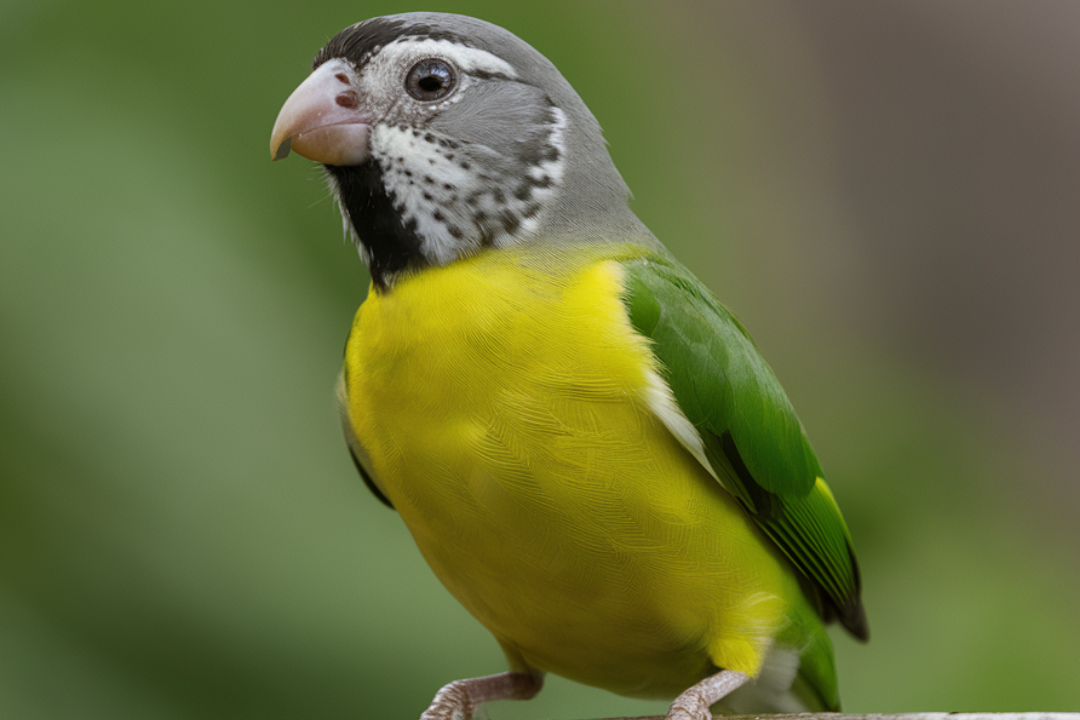
Reproductive health is an essential aspect of your bird’s overall well-being, whether they are a breeding bird or a pet that may experience hormonal cycles. Just like other areas of bird health, reproductive issues can develop without obvious signs, making regular veterinary checkups crucial. Proper care and management of your bird’s reproductive health can prevent serious complications such as egg binding, hormonal aggression, and other reproductive-related conditions.
In this article, we’ll explore why regular vet checkups are vital for managing your bird’s reproductive health, how to recognize potential issues, and how your avian vet can help maintain hormonal balance and prevent reproductive health problems.
The Role of Reproductive Health in Your Bird’s Well-Being
Even if your bird is not actively breeding, reproductive health still plays a significant role in their physical and emotional well-being. Birds, especially females, can lay eggs even without a mate, and both males and females can experience hormonal shifts that influence their behavior and health. If not properly managed, these hormonal changes can lead to:
- Egg Binding: A potentially life-threatening condition where a female bird is unable to pass an egg.
- Overproduction of Eggs: Some birds may lay too many eggs, depleting their calcium stores and leading to health issues like soft bones or fractures.
- Hormonal Aggression: Birds may become territorial or aggressive during breeding seasons due to increased hormone levels.
- Reproductive Tract Infections: These infections can affect both male and female birds and may go unnoticed without regular checkups.
By visiting an avian vet regularly, you can help ensure that your bird’s reproductive system stays healthy and that potential problems are detected and treated early.
Common Reproductive Health Issues in Birds
Birds are unique creatures, and their reproductive health can be affected by several factors, including diet, environment, and genetics. Some of the most common reproductive health issues that avian veterinarians encounter include:
1. Egg Binding
Egg binding is a serious condition in which a female bird cannot lay an egg. This can happen for several reasons, including poor nutrition, lack of exercise, or abnormalities in the bird’s reproductive tract. Signs of egg binding include:
- Straining to pass an egg
- Lethargy and weakness
- Abdominal swelling
- Loss of appetite
- Difficulty breathing
An avian vet can diagnose egg binding and provide immediate treatment to relieve the bird and prevent further complications.
2. Chronic Egg Laying
Chronic egg laying can lead to calcium deficiency, malnutrition, and exhaustion in female birds. Birds who lay eggs excessively can also experience reproductive health problems, such as soft-shelled or malformed eggs, leading to complications like egg binding or infection.
Your vet can work with you to manage your bird’s environment and diet to help reduce chronic egg laying and support reproductive health.
3. Hormonal Behavior Changes
Hormonal surges during breeding season can cause changes in your bird’s behavior, including increased aggression, nesting behaviors, or territorial tendencies. These changes are natural but may become problematic in a pet bird’s environment. Regular checkups allow your vet to monitor your bird’s hormonal health and suggest ways to reduce hormonal behaviors.
4. Reproductive Infections and Tumors
Both male and female birds can develop infections or tumors in their reproductive organs. These issues may not present symptoms until they become advanced, which is why routine vet visits are important. Your vet can perform exams and imaging, such as X-rays or ultrasounds, to detect any abnormalities early on.
How Regular Vet Checkups Help with Reproductive Health
Routine veterinary care provides a proactive approach to managing your bird’s reproductive health. Your vet will monitor for early signs of reproductive issues, offer guidance on preventing problems, and provide treatments when necessary. Here’s how regular checkups benefit reproductive health:
1. Nutritional Guidance
A proper diet is key to maintaining reproductive health in birds. Nutritional imbalances, such as calcium deficiency, are often linked to reproductive issues like egg binding. Your vet can recommend a diet rich in calcium and other essential nutrients that support healthy egg production and reproductive health.
2. Hormonal Management
Your avian vet can suggest ways to manage your bird’s hormonal cycles, especially if they exhibit behavioral issues or overproduce eggs. Strategies may include adjusting their light exposure, modifying their environment, or offering hormone therapy in extreme cases.
3. Egg Production Monitoring
For female birds, regular vet visits can help monitor their egg production and ensure they are not overproducing. Your vet may recommend changes in diet, environment, or handling to prevent excessive egg laying and its associated health risks.
4. Early Detection of Reproductive Diseases
Many reproductive diseases, including infections or tumors, may not present noticeable symptoms until they have progressed. Regular checkups allow your vet to detect subtle signs of these issues early on through physical exams, blood work, and imaging.
5. Post-Laying Care
If your bird has recently laid eggs, your vet can provide post-laying care to ensure their body is recovering well. This may include calcium supplements, monitoring for any signs of infection, and ensuring proper nutrition.
Tips for Supporting Your Bird’s Reproductive Health at Home
In addition to regular vet visits, there are several things you can do at home to support your bird’s reproductive health:
- Provide a Balanced Diet: Ensure your bird is getting a diet rich in calcium, protein, and essential vitamins to support reproductive health. Pellets, leafy greens, and calcium-rich foods are important for females who lay eggs.
- Limit Hormonal Triggers: Reducing exposure to potential nesting materials or limiting daylight hours can help minimize hormonal surges in your bird. Consult with your vet to find the best strategy for your bird.
- Monitor Behavior: Keep an eye on any changes in your bird’s behavior, especially during breeding season. If you notice increased aggression, lethargy, or signs of nesting behavior, talk to your vet about possible interventions.
- Encourage Exercise: Physical activity helps prevent obesity and promotes overall health, which can reduce the risk of reproductive issues. Make sure your bird has plenty of space to fly and explore.
VIII. Customized Care Plans
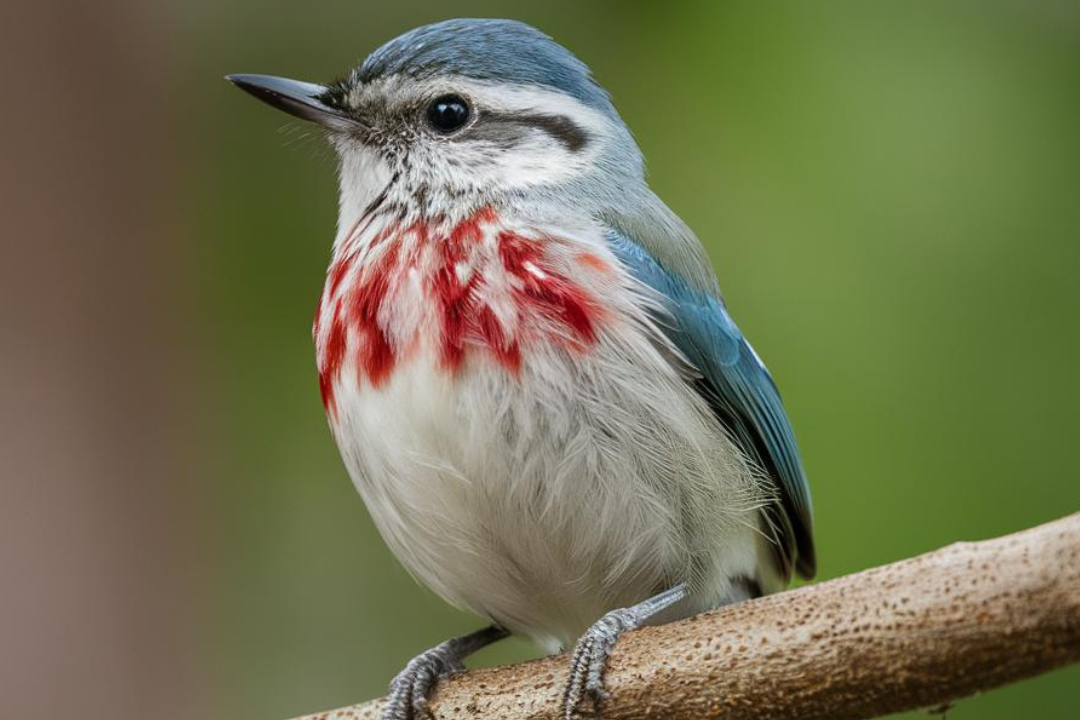
Birds, like all pets, have unique health needs based on their species, age, lifestyle, and environment. Regular veterinary checkups allow for the creation of customized care plans that ensure your bird receives tailored attention and support for their specific health requirements. These individualized care plans are essential for maintaining optimal health and addressing potential problems before they escalate into serious issues.
In this article, we will discuss how customized care plans are developed, their benefits, and why they are vital to your bird’s overall well-being.
What Is a Customized Care Plan for Birds?
A customized care plan is a veterinary-designed, individualized approach to your bird’s healthcare. It takes into account your bird’s species, age, diet, activity level, living conditions, and medical history to provide targeted health care. The plan can include preventive measures, dietary recommendations, and guidelines for managing any existing conditions or potential risks specific to your bird.
Why Customized Care Plans Matter
Birds are not a one-size-fits-all type of pet. Different species have different nutritional needs, sensitivities, and susceptibilities to illnesses. For example, a parrot’s dietary requirements differ from those of a finch or a cockatiel. Similarly, older birds may require more attention to joint health or the prevention of age-related diseases, while younger birds might need guidance on developing healthy habits.
Here are some of the key reasons customized care plans are crucial for your bird’s health:
1. Species-Specific Care
Each bird species has unique needs. A customized care plan allows your avian vet to provide species-specific advice on diet, exercise, cage setup, and enrichment. This level of precision ensures that your bird is getting the appropriate care for their specific species, reducing the risk of health problems associated with improper care.
2. Age-Appropriate Recommendations
As birds age, their care needs change. Young birds may need extra attention to growth and development, while senior birds require a focus on joint health, cognitive function, and age-related diseases. Regular checkups enable your vet to adjust your bird’s care plan to meet their changing needs as they age.
3. Preventing Species-Specific Diseases
Certain bird species are more prone to specific illnesses. For example, budgies are susceptible to liver disease, while African grey parrots are more likely to develop calcium deficiencies. A customized care plan focuses on preventing these species-specific health problems through dietary adjustments, supplementation, and preventive care.
How Customized Care Plans Are Developed
During a regular veterinary checkup, your avian vet will gather comprehensive information about your bird’s health and lifestyle. This includes:
- Species Information: Understanding the species-specific needs of your bird.
- Medical History: Reviewing past health issues, surgeries, and vaccinations.
- Diet Assessment: Evaluating your bird’s diet to ensure they are receiving the right nutrients.
- Behavioral Observations: Noting any changes in behavior that may signal underlying health concerns.
- Environmental Factors: Discussing the bird’s living conditions, such as cage size, perches, and toys, to ensure they are conducive to optimal health.
- Physical Examination: Conducting a thorough physical exam to check for signs of illness, weight management, and overall condition.
Based on this evaluation, your vet will develop a tailored care plan that outlines steps to keep your bird in the best possible health.
Key Components of a Customized Care Plan
Customized care plans for birds can vary widely depending on individual factors. However, most plans will include the following core components:
1. Dietary Recommendations
Birds have specific nutritional needs depending on their species and age. Your avian vet will recommend a balanced diet that includes the right mix of pellets, fresh fruits, vegetables, seeds, and supplements. If your bird is prone to conditions such as obesity, malnutrition, or specific nutrient deficiencies, the care plan will address these concerns with dietary adjustments.
2. Exercise and Enrichment
Physical and mental stimulation is critical for birds, especially those that spend a lot of time in cages. Your vet will recommend exercise routines and enrichment activities, such as toys, foraging opportunities, and social interaction, to keep your bird active and mentally engaged. This prevents boredom, which can lead to behavioral problems like feather plucking or aggression.
3. Monitoring Weight and Health Indicators
Regular weight checks are an important part of bird health care, as sudden weight loss or gain can be a sign of underlying health problems. Your vet will help you monitor your bird’s weight and provide guidance on maintaining a healthy weight through diet and activity.
4. Preventive Care
Preventive care is a cornerstone of customized care plans. This includes regular vaccinations, parasite prevention, and dental care for species with beak-related issues. Your vet will also guide you on how to minimize risks of common diseases by adjusting environmental factors, such as cage cleanliness and air quality.
5. Monitoring Behavioral and Health Changes
Your bird’s behavior often offers the first clues about their health. A customized care plan will include guidelines on how to monitor your bird for signs of illness or stress, such as changes in eating habits, vocalization, or activity levels. The plan will also outline what to do if you notice any concerning symptoms.
6. Addressing Chronic Conditions
If your bird has a chronic health condition, such as respiratory issues, arthritis, or feather plucking, the care plan will provide targeted treatments to manage the condition. This could include medication, dietary supplements, or environmental changes that reduce symptoms and improve your bird’s quality of life.
The Benefits of a Customized Care Plan
By having a customized care plan in place, you are providing your bird with the best possible opportunity for a long, healthy life. Here are some of the key benefits:
- Targeted Preventive Care: Tailored plans allow you to focus on preventing diseases specific to your bird’s species and individual needs.
- Improved Overall Health: With proper diet, exercise, and environmental enrichment, your bird’s physical and mental health will thrive.
- Early Detection of Problems: Regular monitoring of your bird’s health allows for early detection and treatment of illnesses or conditions.
- Better Quality of Life: Your bird will be happier, more active, and healthier with a plan designed specifically for their unique needs.

